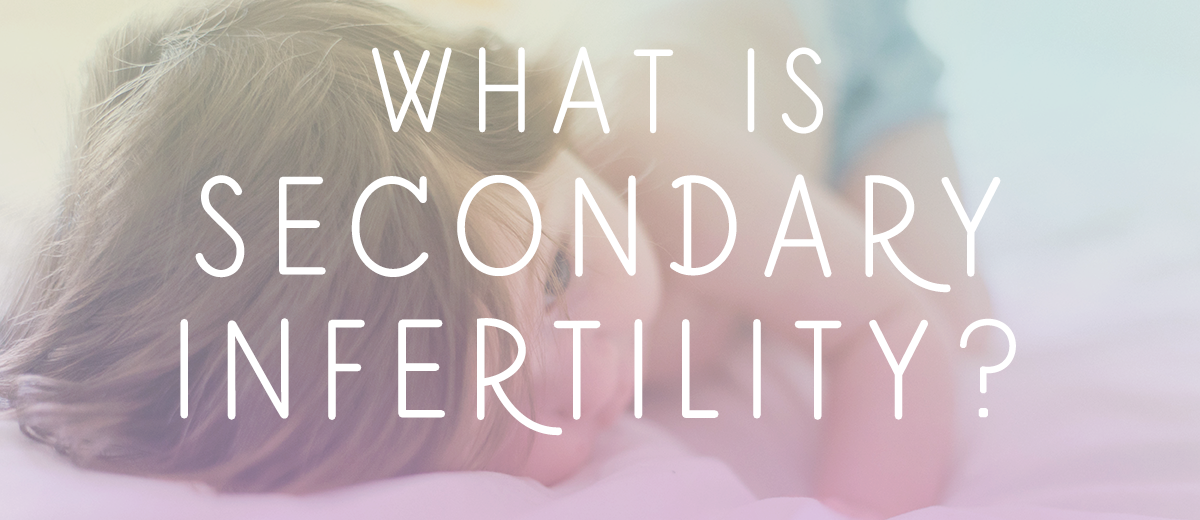What is Secondary Infertility?
Even if you're super familiar with fertility terms and reproductive health, secondary infertility doesn't get talked about all that much, so you may not have heard of it. Primary infertility refers to when someone has trouble getting pregnant the first time, while secondary infertility effects those who have already had a child and are having trouble conceiving again.
It may seem like a confusing scenario, if someone could conceive once, why can't they conceive again? But it's actually quite a common condition that I treat regularly.
So what causes Secondary Infertility?
Many of the same conditions that cause primary infertility can cause secondary infertility as well. Conditions such as uterine scarring, fibroids, polyps, endometriosis, thin uterine lining, low egg quality or reserve, lack of ovulation, blocked fallopian tubes, hormonal or metabolic imbalances, or vitamin deficiencies.
Depending on age, diet, exposure to toxins, and several other factors, egg quality may be lower than when the first pregnancy occurred. History of surgical birth, D&C, STI, or Pelvic Inflammatory Disease (PID) may all contribute to uterine scarring and therefore can effect fertility. Also, imbalances in other major systems can play a huge role in whether or not a woman can get pregnant, for example, if thyroid is hyper/hypo-active or blood sugar levels are out of range, then that may effect hormones and ovulation.
But many of my patients have ruled out all of these factors before coming to see me, in which case, what could be causing the secondary infertility?
With each of these women I'm always sure to ask about their birth experience, and it may or may not surprise you to find out that the majority of these patients have a significant amount of birth trauma. Many tear up or completely break down when talking about it, and most women admit they have done very little work to process the feelings they have about their birth.
Since women are expected to selflessly dive head first into motherhood after labor, many unconsciously consider it lazy or depressing to talk about the negative feelings they may carry from their birth. Feelings such as violation, shame, helplessness, resentment, or disappointment are big feelings for ignore, and feelings ignored tend to fester and grow bigger and scarier.
Many people also have trouble doing direct work with trauma until some time has passed and their feelings about it aren't quite as raw or triggering. Even though it's possible to ignore trauma and still be a highly functioning human being and caring mother, trauma has a way of sneaking in and negatively effecting how the body works. Especially when the trauma has occurred to the very part of the body that is now having trouble functioning properly, the reproductive system, the connection becomes quite obvious.
Then what?
When I say there's an energetic blockage causing physiological symptoms, some people have trouble wrapping their heads around that. They may see the connection between the trauma and infertility, but what's less obvious is what exactly isn't working? What's blocked? And even more importantly, how is it fixed?
In Chinese medicine the body is considered to have several channels of energy, or "Qi" that circulate throughout the body - both internally in our organs and externally through acupuncture points on the surface of our skin. The uterus is surrounded by several channels, the Kidney channel being one of the most often involved in birth trauma, both because the kidneys nourish the reproductive system and because they are the organ most effected by fear and trauma.
Acupuncture works really well in these cases, I find that Kidney-focused treatments are particularly effective. Not only is acupuncture able to relieve and overcome reproductive trauma, but it's also able to improve overall health, balance hormones, improve circulation, and boost fertility.
If you'd like you use acupuncture to improve fertility and heal birth trauma, schedule and appointment, or learn more about Holistic Fertility Coaching.


